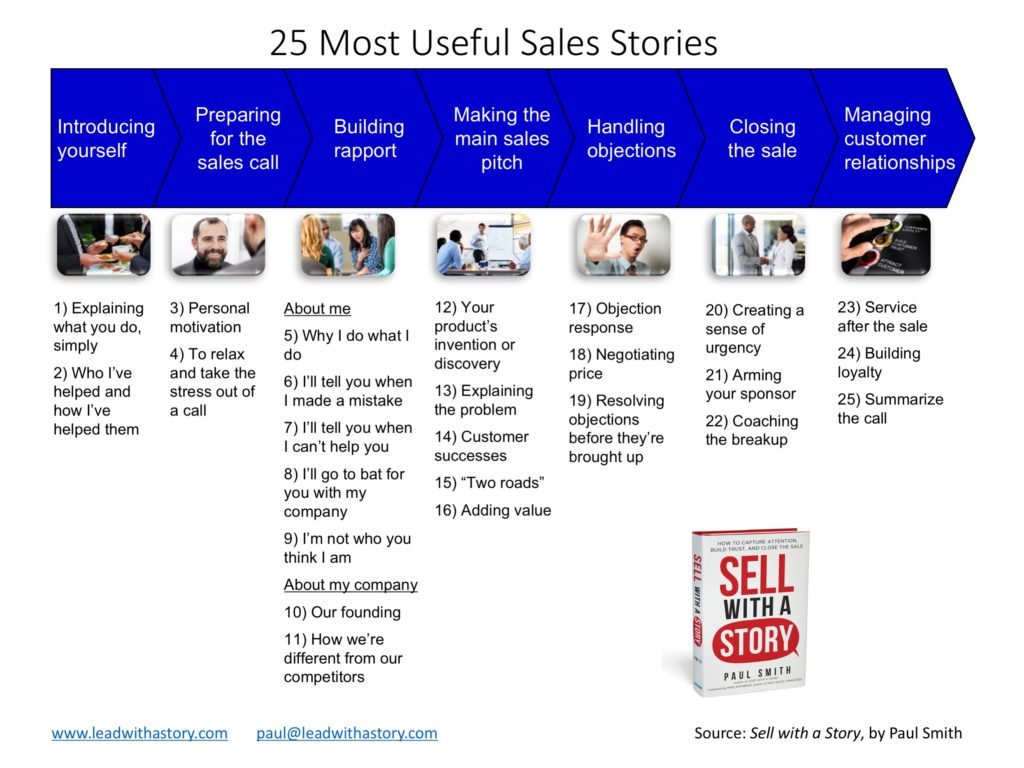Stories allow us to relate to one another, to better understand one another, to build trust. The power of stories is important for parenting, working, relationships, and even selling. Paul Smith, “one of the world’s leading experts on business storytelling,” wrote multiple books emphasizing the importance of stories, one in particular called Sell with a Story. Smith walks through the power of stories in the entirety of the selling process, encouraging each seller to walk through the process only by way of story-telling. Throughout his book, Smith follows the process below:

One of the interesting points that caught my attention was under the idea of “Building Rapport,” which included being transparent with buyers about admitting mistakes. Smith says that, when appropriate, admitting when you’ve made a mistake to a buyer will earn you instant credibility. It’s often a credible quality to tell a story about when you’ve made and admitted a mistake with previous buyers, because buyers then have the confidence that although there is a possibility that you may make a separate mistake in the future, you’re going to tell that buyer when you made a mistake and handle the situation appropriately. The fear in this approach might be that buyers develop a fear that you are incapable of performing to their expectations, due to your previous mistakes, but Smith argues that there is more value in admitting mistakes than being loosely transparent about past transactions that didn’t go well.
For more information visit: https://leadwithastory.com/25salesstories/
I love the insight on suggesting a good book to read! I have read a few and definitely looking to expand my horizons. The 25 sales stories are also some great information relating to the world of sales. It lays out the entire sales process in a clear and easy to understand way. Your point about building rapport is extremely important because customers want us to be upfront with them. This is best way to build a relationship with your customer.
I like your point on being clear to admit mistakes in the framework of telling your story. It’s important to be clear on our past mistakes, but incorporating them into our stories brings a trustworthiness to the company or person telling that story.